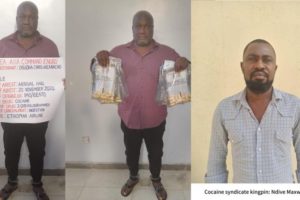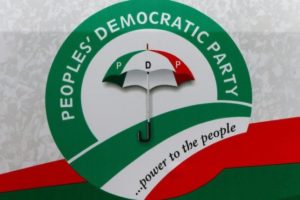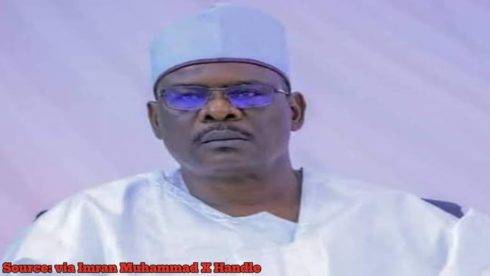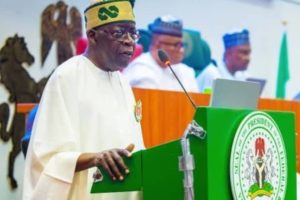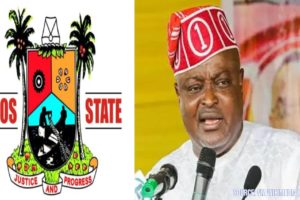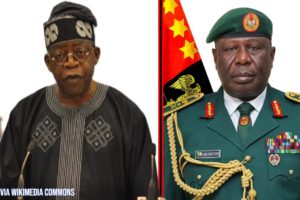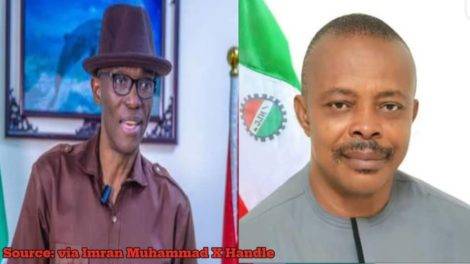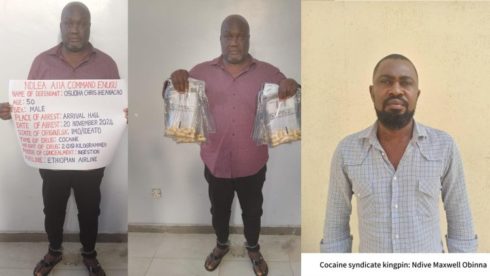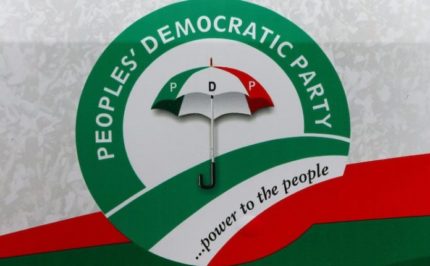In a tumultuous turn of events, the Labour Party is plunged into a maelstrom of leadership discord, pitting the National Working Committee (NWC) against the Nigeria Labour Congress (NLC). The clash is ignited by allegations levied by the NWC, pointing fingers at Joe Ajaero, the President of the NLC, for orchestrating a campaign to dethrone Julius Abure, the incumbent National Chairman of the Labour Party. This accusation arises following a scathing missive from the NLC’s Political Commission, lambasting Abure’s stewardship and urging his immediate departure.
Amidst escalating tensions, the rift between the NWC and the NLC underscores deep-seated fissures within the Labour Party, threatening to destabilize its internal coherence and political efficacy. As accusations fly and tensions mount, the specter of a leadership crisis looms large, casting a pall over the party’s prospects and raising questions about its ability to navigate the turbulent waters of Nigerian politics.
Allegations of Clandestine Plans and Unlawful Conventions
The National Working Committee (NWC) has ignited controversy with its purported plans for a secretive national convention scheduled for March 27 in Umuahia, Abia State. This convention, as disclosed in response to the Nigerian Labour Congress’s (NLC) letter, allegedly seeks to secure the re-election of Abure as the party chairman. However, the NLC’s Political Commission has raised significant apprehensions regarding the event’s legitimacy, asserting that it lacks adequate consultation with key stakeholders, including the NLC itself. Furthermore, the commission pointed to a prior unilateral attempt by Abure to extend his term, which was only halted through internal party intervention, underscoring concerns about procedural fairness and transparency within the party’s leadership selection process.
The revelation of this clandestine convention has intensified existing tensions within the party, casting doubt on the NWC’s commitment to inclusive decision-making and democratic principles. The lack of transparency and apparent disregard for broader stakeholder input risks exacerbating internal divisions and undermining the party’s credibility both internally and externally. With allegations of unilateral power grabs and opaque processes, the NWC faces mounting pressure to address concerns raised by the NLC and other stakeholders to ensure a fair and legitimate electoral process that upholds democratic values and fosters unity within the party.
Denouncement and Counterclaims
The controversy surrounding the NLC’s scheduled convention has intensified as the political faction within the organization has denounced it as unlawful. This faction has gone as far as calling for Abure’s resignation and proposing the establishment of a temporary transition committee. However, the LP’s leadership has firmly opposed this directive, arguing that it is driven by Ajaero’s ulterior motive to seize control of the party. They have accused Ajaero of undermining previous efforts aimed at fostering harmony between the NLC, TUC, and Labour Party, branding his actions as “rascality.” This conflict within the NLC highlights the power struggle and discord within the organization, potentially impacting its future direction and cohesion.
Amidst the accusations and counter-accusations, the rift within the NLC poses significant challenges to its stability and effectiveness. The call for Abure’s resignation and the proposal for a temporary transition committee underscore the deep-seated divisions within the organization’s leadership. Furthermore, the allegations of Ajaero’s interference and ambition add another layer of complexity to the situation, raising concerns about the party’s ability to function cohesively. As this power struggle unfolds, it remains to be seen how the NLC will navigate these internal tensions and whether it can emerge stronger and more united or succumb to further discord and fragmentation.
Historical Context and Previous Conflicts Between Labour Party and Nigeria Labour Congress
In a historical context, the Labour Party (LP) delves into its intricate relationship with the Nigerian Labour Congress (NLC), spotlighting a pivotal moment in 2014 marked by what they termed a “war of blackmail and attrition.” This period saw the Nigeria Labor Congress embroiled in conflict with the Labour Party and its leadership, showcasing a tumultuous chapter in their shared history. The LP attributes the restoration of harmony between the parties to Abure’s efforts, illustrating a fleeting truce that was allegedly disrupted by Ajaero’s subsequent actions. By recounting this narrative, the Labour Party P aims to underscore the importance of employing civil and diplomatic means to address disputes within the labor movement, highlighting the consequences of veering from such principles.
Moreover, the Labour Party levies accusations against the Nigeria Labor Congress, suggesting a deviation from its own previously articulated stances on the necessity of a national convention. This allegation casts a shadow on the Nigeria Labor Congress‘ consistency and integrity, fostering a critical examination of its leadership’s actions. Through this discourse, the Labor Party positions itself as a proponent of adherence to established norms and principles within the labor movement, advocating for transparency and accountability in navigating intra-organizational conflicts. By articulating these arguments, the Labor Party seeks to bolster its credibility and influence within the broader discourse on labor relations, while also appealing to stakeholders invested in fostering constructive dialogue and resolution mechanisms within the labor movement.
Call for Unity Between Labor Party and Proper Procedures
In the midst of escalating tensions, the imperative for unity within the labor movement emerges as a focal point. However, diverging perspectives on the trajectory forward perpetuate discord between the two primary factions. The Labor Party staunchly upholds adherence to established protocols, vehemently opposing any semblance of external influence encroaching upon its internal affairs. Conversely, the National Labor Congress’s (NLC) Political Commission remains resolute in its support for Abure’s leadership, underscoring the significance of consultation and legal compliance in steering party directives.
Despite mutual calls for solidarity, the chasm between the Labour Party (LP) and NLC persists, underpinned by their conflicting interpretations of procedural propriety and leadership legitimacy. The LP’s unwavering stance against external interference underscores its commitment to upholding internal autonomy and safeguarding against perceived encroachments on party sovereignty. Conversely, the Nigeria Labor Congress emphasizes the primacy of inclusive decision-making processes guided by legal frameworks, advocating for a consultative approach to foster cohesion and legitimacy within the labor movement. As both factions navigate these ideological crosscurrents, the prospect of reconciling divergent viewpoints remains elusive, leaving the labor movement ensnared in a web of acrimony and contention.
Labor Party and Nigeria Labour Congress: Uncertain Future and Path to Resolution
Amidst escalating tensions between the Labour Party (LP) and the Nigeria Labour Congress (NLC), the future of the Labor Party appears increasingly uncertain. The alleged power struggle between Abure and Ajaero not only threatens the stability of the Labour Party but also carries profound implications for the broader labor movement in Nigeria. As accusations continue to surface and trust diminishes, the path to a satisfactory resolution becomes increasingly challenging. The unfolding leadership turmoil within the Labor Party underscores the urgent need for dialogue and reconciliation to preserve the integrity and effectiveness of both organizations.
The outcome of this power struggle will likely reverberate beyond the confines of the Labor Party and the Nigeria Labor Congress, shaping the landscape of labor relations in Nigeria for years to come. With the stakes high and tensions mounting, stakeholders must prioritize constructive dialogue and conflict resolution strategies to navigate through this turbulent period. As the future of the Labor Party hangs in the balance, only time will unveil the ultimate resolution of this leadership crisis and its ramifications for the Nigerian labor movement as a whole.
Table of Contents
Discover more from OGM News NG
Subscribe to get the latest posts sent to your email.

